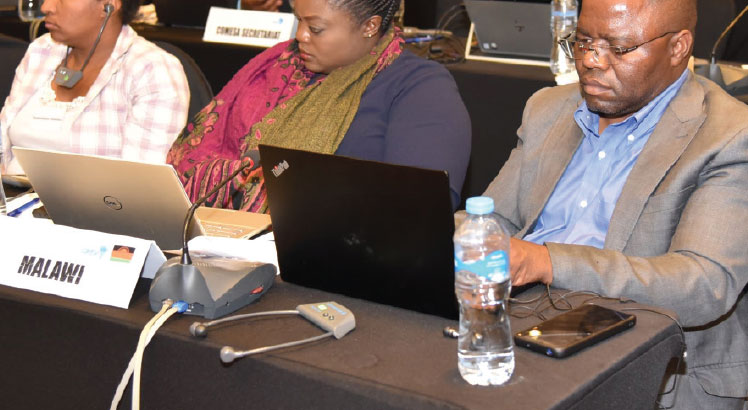Comesa urges comprehensive research on pharmaceuticals
The ninth Common Market for Eastern and Southern Africa (Comesa) Annual Research Forum has recommended the need to undertake a comprehensive research on pharmaceuticals production and trade flows to determine trade and competitiveness opportunities.
The four-day forum, which was convened in Cairo, Egypt and attracted scholars, researchers, academics, regional and international experts from the public and private sectors called for the strengthening mobilisation of resources to promote science, technology and innovation activities.

One of the research projects conducted by Adam Willie from Zimbabwe titled ‘Cross Border Data Exchange under the Comesa Digital Free Trade Area: Implications on Intra-regional Trade’, found that 43 percent of Comesa member States do not have national data protection law, saying this acts as a barrier to data flow.
The study further established that the presence of data protection laws increases intra-Comesa trade.
“There is also heterogeneity in data protection laws in the region, a situation which hurts intra-Comesa trade,” said Willie, adding that harmonisation of cross-border data flow regulations is critical in boosting intra-Comesa trade.
Another study by Shingirirai Mashura of the University of Seychelles found that digitalisation has a positive effect on intra-Comesa trade.
He said a 10 percent increase in e-commerce Internet usage increases intra-Comesa exports by 0.63 percentage points while imports increase by 0.22 percentage points.
In his study, Douglas Chikabwi from Zimbabwe found that sanitary and phytosanitary standards and technical barriers to trade have an effect on intra-Comesa agricultural exports.
The study found that annually, Comesa is estimated to lose $74.4 million from the trading of agriculture raw materials alone because of sanitary and phytosanitary standards and technical barriers to trade policy measures.
A related study was presented by Stein Masunda of Zimbabwe on the effects of non-tariff measures on agricultural trade performance in Comesa.
He found that on one hand, sanitary and phytosanitary measures are export-enhancing while technical barriers to trade measures negatively affect intra-Comesa agricultural export volumes.
Speaking at the closing of the forum, Comesa director of trade and customs Christopher Onyango called on researchers and academicians in the regional trade bloc to take advantage of the annual Comesa Research Forum to make their contribution to the regional integration agenda.
Eight research papers based on emerging topical issues in economics, trade and regional integration at continental and global level were presented for review.
They included a study on the trade implications of the cross-border data transfer laws/policies in the Comesa region.
The Annual Research Forum underlined the need for strengthening collaboration between the academia, researchers and policymakers and ensures relevance of research outputs to enhance uptake of policy recommendations.
It also called for widening the scope of participation of various disciplines.
Comesa is a regional economic community established in 1994.
It brings together 21 African member States with a population of 598 million people into a cooperative framework for sustainable economic growth and prosperity through regional integration.
The research forum was intended to build resilience in line with the theme of the forum ‘Enhancing Business Competitiveness and Resilience to Boost Intra-Comesa Trade’.





